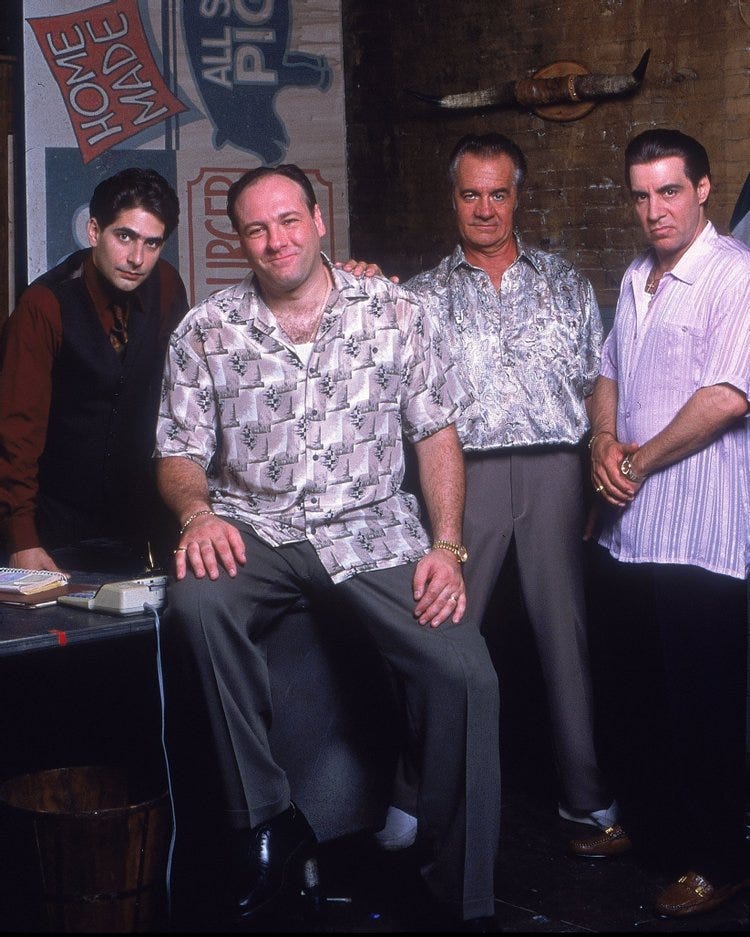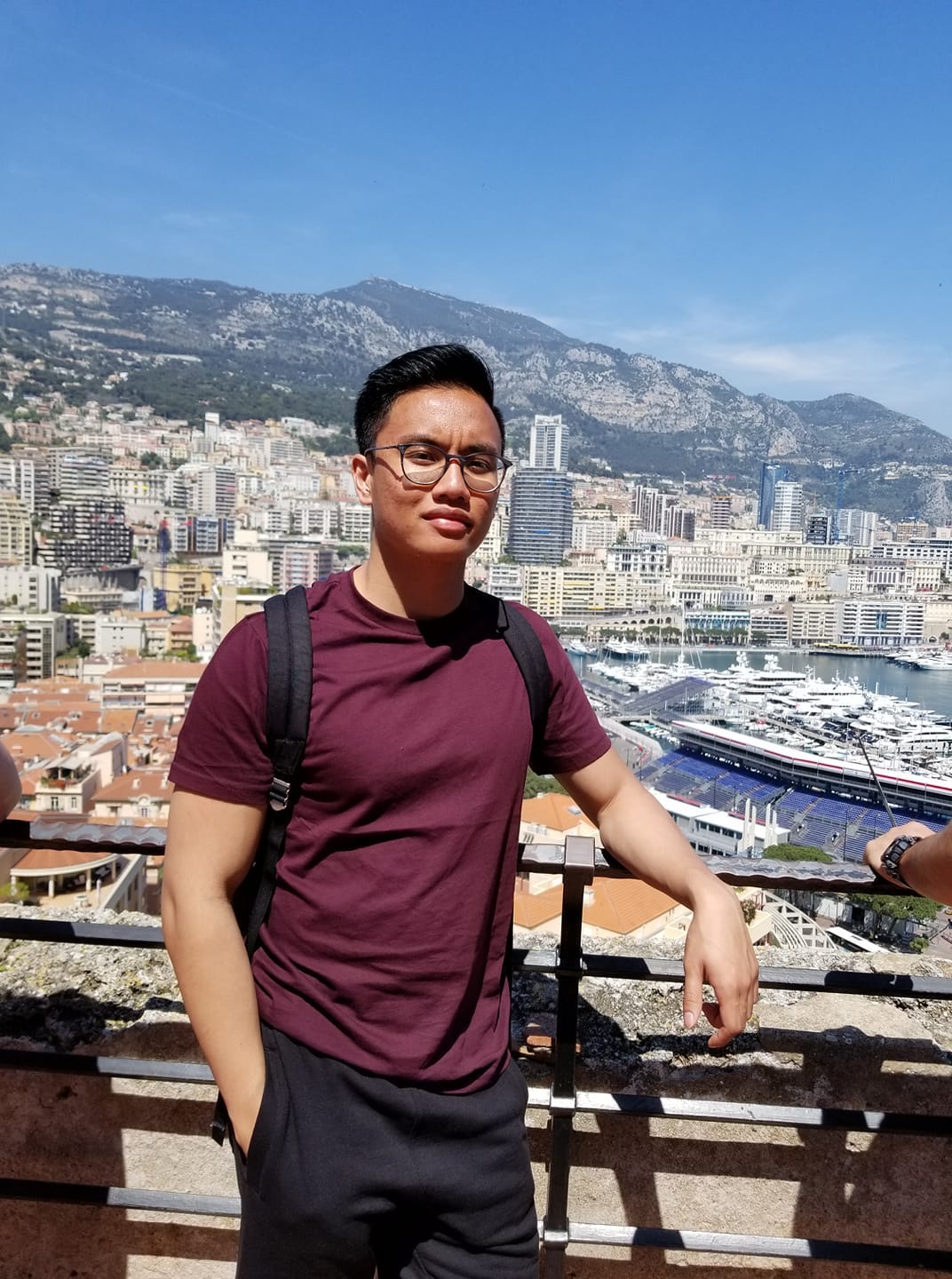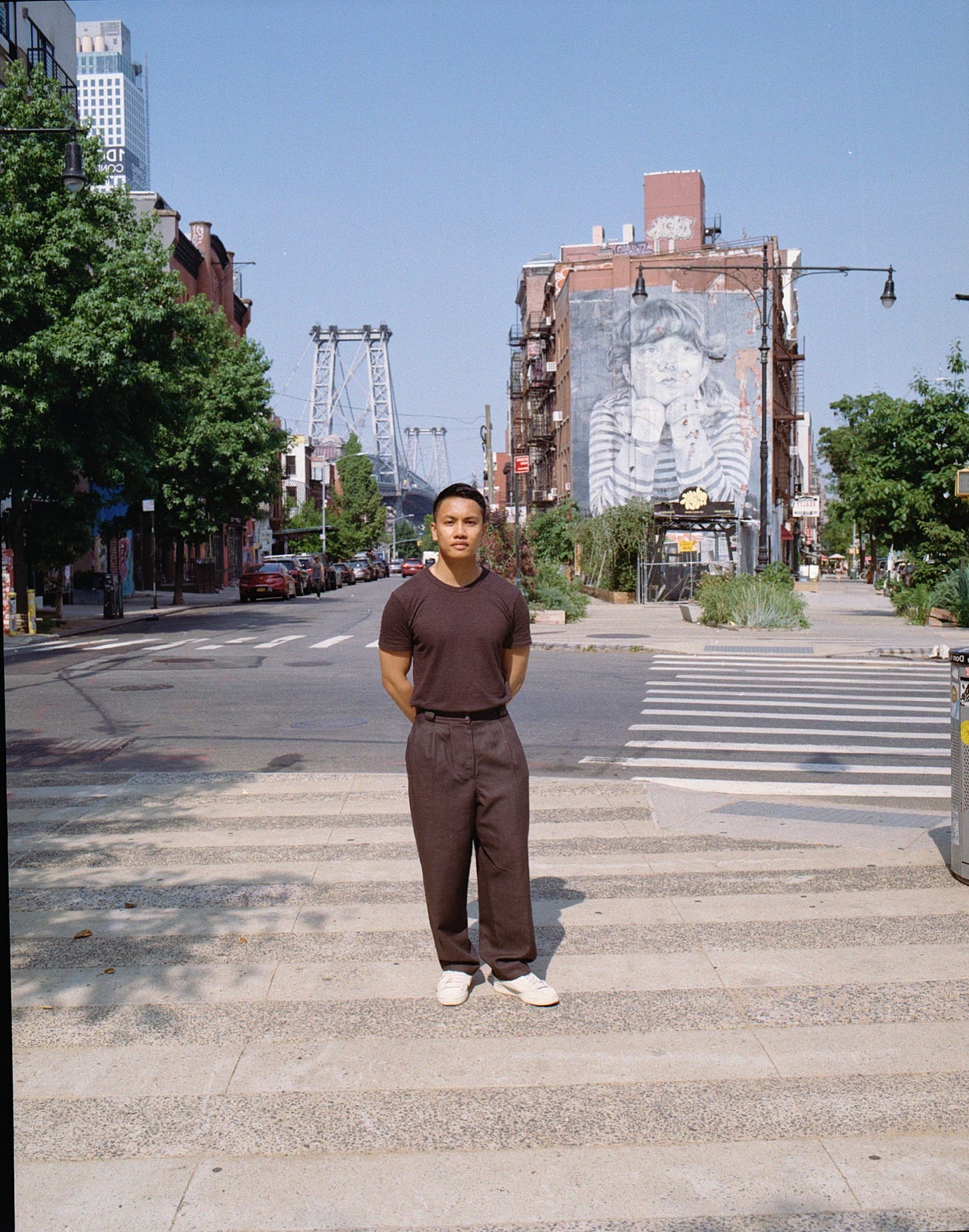Your Outfit is a Biography
On the story your clothes tell and my journey into becoming a student of fashion
Four years ago, I had a conversation with a friend that started my fashion journey. I was back in my hometown and I bumped into an old high school friend at the gym. We hadn’t talked since senior year of high school and the first thing he said to me was, “James, you look exactly the same.” The last time we talked, I was 16, I was still a kid. I was 22 now. Internally, I grew so much. Externally, I looked the same. I realized there was a gap between how I saw myself and how I presented myself through my clothing.
Growing up, I’ve always liked dressing up. Back in elementary school, the popular trend was big, bulky, and colorful G-shock watches. For my birthday, my parents got me one. It was a black G-shock that was bigger than my pre-teen wrist with red accents loaded with features I didn’t need like the moon phase and tide graph. I loved it. I broke necks the first day I wore it at school. One of the popular kids asked if he can borrow it for a period. My status instantly elevated to that of one of the “cool” kids. As a status-conscious, insecure, teenage boy, this is when I started associating dress with status. I wore that watch daily for the rest of the school year. And this mindset continued throughout the rest of high school.
After high school, I studied engineering at the University of Waterloo, a university renowned for producing strong engineers, particularly in the tech industry. Waterloo's reputation and focus on technology influenced the overall culture and environment on campus. My experience at Waterloo provided a glimpse into the culture, language, and dress code of Silicon Valley.
Many of the most famous figures in tech wore minimalist uniforms. Steve Jobs with his signature Issey Miyake black turtleneck, medium wash Levi’s 501 jeans, and gray New Balance 992. Or Mark Zuckerberg with his daily uniform of a tee and jeans which he says reduces his cognitive load in the morning. You couldn’t judge someone by how they dressed because they could be building the next big unicorn.
Embracing the tech uniform of basic pieces and Patagonia tech wear gave me permission to not care about what I was wearing. No one else around me cared either. I found it was refreshing. I started to dress and look like everyone else.
My style remained largely unchanged during my college days.
Then in early 2020, I had the conversation with my friend that I mentioned at the beginning of this piece. Imagine if a Pokémon evolved, becoming stronger, faster, and more capable, but its appearance remained the same. This is how I felt about my wardrobe. I was due for a change.
“Living in New York City is a free fashion education. I'd treat clothing stores like classrooms and I’d ask the staff questions like they were my professors.”
After graduation, I moved to New York City, one of the world's fashion capitals. In New York City, the sidewalks are runways, people here look amazing even when doing their Sunday errands. Every time I stepped out of my apartment, I felt this tension because I was perpetually underdressed.
Eventually, that tension slowly built up, and I was inspired during my first Summer in New York to become a student of fashion. My goal wasn't only to revamp my wardrobe but I wanted to understand the craft. In my first week, I donated 90% of my wardrobe and built it up from scratch. I bought a Fashion 101 textbook and I bought Tan France’s MasterClass on Style. Living in New York City is a free fashion education. I'd treat clothing stores like classrooms and I’d ask the staff questions like they were my professors. I was learning something new every day.
Within the first week of my self-education, I bought new jeans, pants, shirts, and a bag. Within the first two weeks, people started to take notice. I was getting compliments from friends every time we hung out. My barista complimented my new watch. The cute girl at the stationary shop near my apartment liked my shirt. My outfits, and my style, were rapidly evolving. The compliments were addictive and it was feedback that I was heading in the right direction.
Beyond the ego boost of getting compliments, I was becoming more confident in my dress. People like to say that fashion is superficial. In an ideal world, people don’t judge you based on your appearance. The reality is that people do judge you. Many things can be inferred from your dress: your occupation, your interests, and your personality. Even if you don’t care about what you wear, that suggests something about you. Why didn’t you wear a burlap sack instead? Why not wear a jumpsuit? Why wear a T-shirt and Jeans? It may suggest humility, rejection of social status, or that you’ve prioritized other things in life.
What’s empowering about fashion is that, unlike many aspects of our appearance, you can control how you dress. Fashion offers a way to use appearance and first impressions to portray yourself however you desire - a form of soft power. Whatever it is you want to be, whatever you want to accomplish, you can use clothing to get you there.
As I furthered my education, I started to become fluent in the language of fashion. Fashion is a way of speaking without saying a word. Character and costume designers understand this. Every garment, every detail has a purpose that suggests traits about a character. I recently finished watching The Sopranos, and I couldn’t help but notice how the characters dressed. The costume designer, Juliet Polcsa, sourced many of the character’s outfits from places actual mob members shopped in Brooklyn [source].

Tony’s endless stream of button-down, short-sleeve bowling shirts in geometric patterns and sometimes iconic graphic prints—including the legendary Tabasco-print shirt—also became characters within themselves, signifying emotions and attitudes that hinted at something deeper. “It was always hard to find something that wasn't Versace-looking. I wanted the prints to be a little bit more abstract in a way, but James [Gandolfini] liked those loud shirts because he felt like he's laughing on the outside, crying on the inside—the sad clown, because that's how he felt about Tony.”
So if outfits tell a story, then your outfit is a biography. Personal style is seen as the pinnacle of one's fashion journey. I'd define it as understanding your own story and conveying that story with your clothes. The beauty of fashion is that it’s a form of storytelling.
One of my favorite pieces in my wardrobe is my pair of raw denim from the Japanese brand, Momotaro. These jeans are made from the highest quality materials using the most advanced techniques to create the best possible product. Though raw denim feels stiff at first and takes time to break in, eventually it forms to your body and develops a patina through wear. The more you wear them the better they look. These jeans are ethically and sustainably made with no compromise. It’s craftsmanship at its finest. When I wear them I feel like I’m wearing a piece of art.
Earlier this year, I hosted an open mic that I also presented at. I was wearing a pair of chunky dad sneakers, my Japanese denim, and a chore coat layered on a cashmere sweater. I was feeling my outfit that day.
While I was reading my piece, my friend captured a quick Instagram story that I later shared on my account. That same friend who said I looked the same four years ago, commented on my story, “You have not aged a day.” He rephrased what he said four years ago. I haven’t told him either that his original comment is what started my fashion arc. But this time around, I just laughed and took it lightly. I was confident in my fit, it was my armor, and you couldn’t touch me.












Enjoyed reading this fashion journey and also journey through life. I’d be curious to read other people’s fashion journeys too.
IMO people learn and grow a lot in life and it’s lovely to have that represent visually, in your wardrobe changing.
Inspiring to see how you express yourself through clothing! Each outfit seems to subtly tell a story, offering a unique glimpse into the world through your eyes.